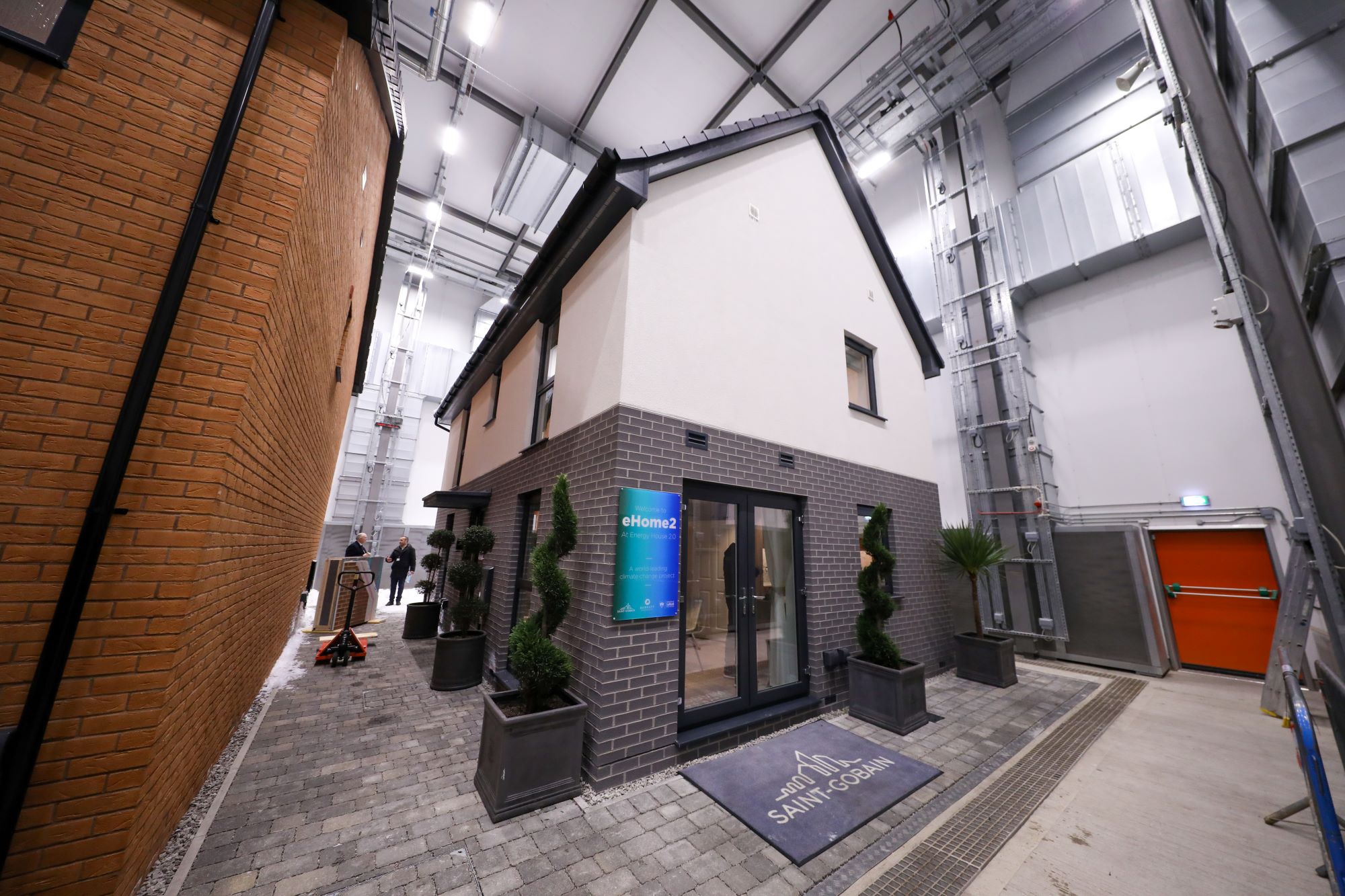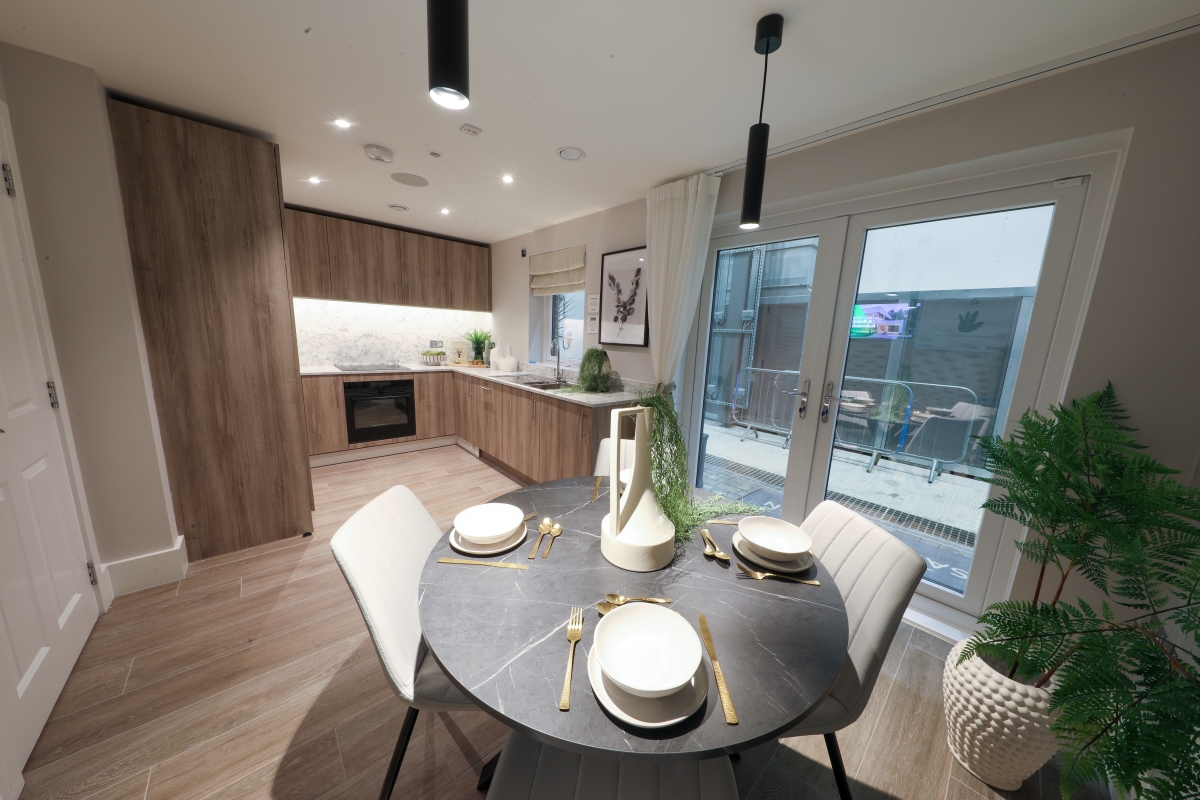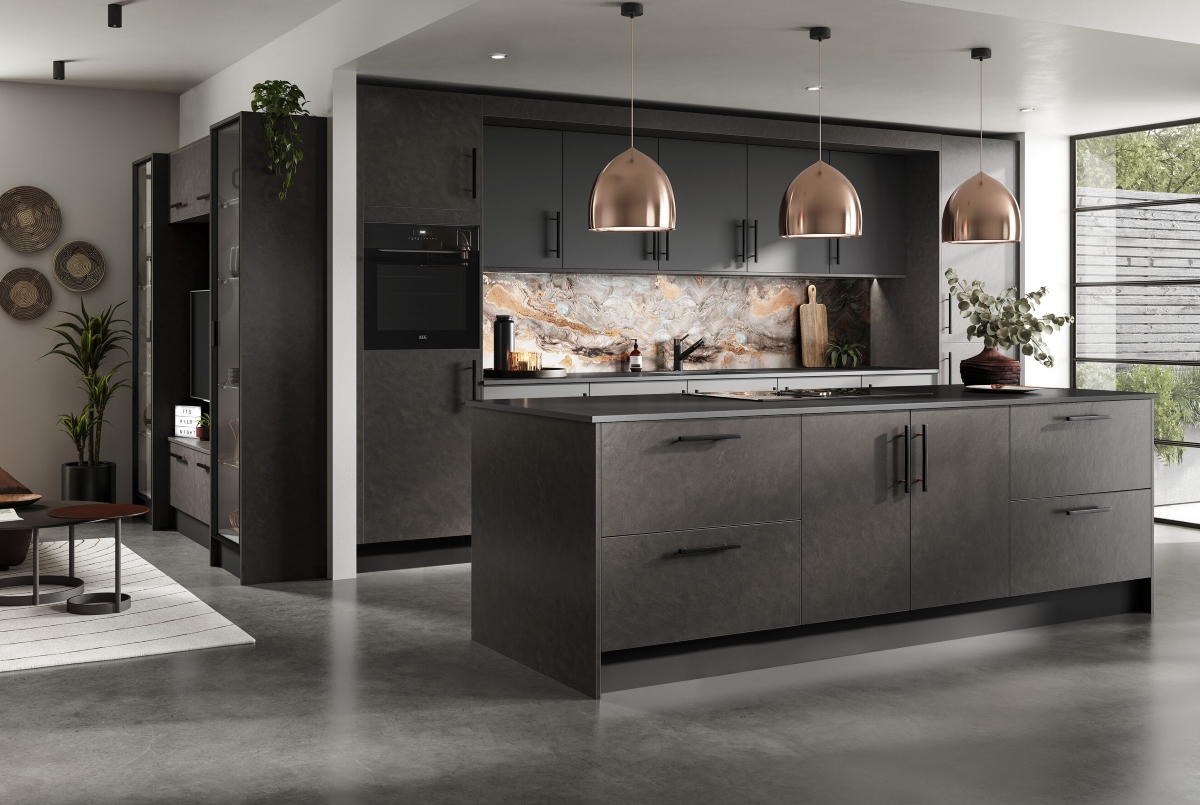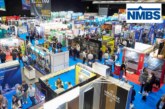
With environmental concerns remaining high on the agenda, manufacturers across the sector are outlining the importance of taking sustainability seriously. In an article originally featuring in the magazine’s October edition, PBM considers the approach of Symphony Group, focusing on its collaboration with Saint-Gobain, Barratt Developments and Bellway on the Energy House 2.0 project at the University of Salford.
The building industry reportedly accounts for 40% of the UK’s carbon footprint. To achieve net zero, there must be a change in both the design of new buildings as well as a complete upgrade and retrofit programme for current housing stock.
To support innovators in delivering net zero homes by 2030, Symphony Group has been involved in the Energy House 2.0 laboratory at the University of Salford in collaboration with Barratt, Bellway and Saint-Gobain. Said to be the largest test and research facility of its kind, this environmental chamber — that is part-funded by the European Regional Development Fund (ERDF) — contains two detached houses that sit within controlled weather and temperature conditions to “drive innovation and solutions that address global and domestic energy efficiency challenges.”
Firstly, the Saint-Gobain and Barratt Developments eHome2 has been created to understand how sustainable housing can be delivered at scale using construction solutions manufactured off-site. It will also pilot the use of next generation heating and ventilation technologies as well as utilise smart technology to enable occupants to change the temperature and turn on the shower at the click of a button.
Symphony’s sustainable Hacienda Grey Driftwood kitchen is part of this scheme with doors made from 100% recycled board, cabinet legs made from 100% recycled plastic (primarily from the motor vehicle industry) and cabinets crafted from a minimum of 50% recycled material.
Symphony’s ‘Cam and Dowel’ manufacturing method also embraces the ‘Repair, Not Replace’ ethos, as it allows any component on a cabinet to be replaced so if any damage occurs over time, just a single panel can be replaced rather than the whole unit.
The house also has a host of additional innovative solutions, including weberwall brick; a high-performing timber frame system from Scotframe and Pasquill’s Posi-Joist floor cassettes that allow for the integration of Mechanical Ventilation & Heat Recovery Systems (MVHR).

The Bellway’s Future Home also features the Symphony New York kitchen in Bottle Green. Symphony says it has been able to offer a sustainable solution for the home as its timber-based products are made of material from well-managed FSC certified forests and the cabinets are made from over 50% recycled material.
The brand also uses water-based paint for all its paint to order cabinet doors. The Future Home also includes three types of heating, two air source heat pumps, mechanical ventilation, solar power with battery storage, enhanced insulation, double vs triple glazing, precast flooring, a shower tray that recaptures heat and a smart control that learns when you need to heat your home.
Testing and research at the Energy House 2.0 began in February 2023 and the first results will be published later this year.
George Burtoft, Sustainability Analyst at Symphony Group, said: “We’re delighted that Symphony was chosen to supply the kitchens for this project. It is testament to our commitment to ensure sustainability runs through every aspect of our business and we are establishing an important reputation for this amongst the UK’s leading housebuilders.”
For more information about Symphony’s sustainability commitments, its product ranges and its support for merchants, visit symphony-group.co.uk
Symphony Group, one of the UK’s largest privately-owned manufacturers of fitted furniture, explains that it already implements a number of sustainability initiatives, with its Sustainability Analyst George Burtoft stating: “We have always taken our responsibilities to the environment seriously and are committed to playing our part by learning, innovating and implementing sustainable actions to limit our impact on the planet.”
The business reports it makes its furniture using only FSC certified timber sourced from responsibly managed forests, and uses water-based paints on all paint to order ranges. It also includes recycled content wherever possible, with cabinet chipboard made from 57% recycled materials, door and drawer fronts in options of 100%, 90% and 50% recycled content and foils made from 70% recycled PET (used plastic bottles) on several ranges.
As referenced in the main article above, the manufacturing methods used by Symphony also allow products to be ‘Repaired, Not Replaced’, saving damaged cabinets from being sent to landfill. And for retailers who are updating a showroom, Symphony is also a partner with The Used Kitchen Company, who will extend the life of an ex-display kitchen by finding it a new home.

The Turin Dark Stone range from Symphony.









